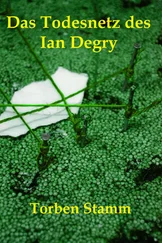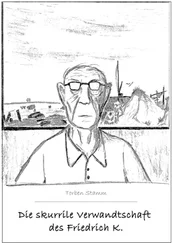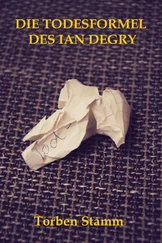We watched as she walked along beside Biefer, talking to him. He didn’t say anything, just looked straight ahead and kept on walking. After a while, Jana returned. She said there was no point. Albert hadn’t seemed to even notice she was there. The journalist said there wasn’t much we could do. Biefer was a free man. We couldn’t force him to talk to us. At the most, we could inform the management. But everyone agreed that that wasn’t a good idea. We decided we would wait. Feeling a little chastened, we all went back to our respective jobs.
From then on Biefer was there every day. Most of the time he sat at his usual place, and he walked across the site once or twice. Jana tried to speak with him a few more times. Eventually she gave up. She told me her note of condolence had been returned by the post office, marked No Forwarding Address. We agreed to meet on one of the following evenings at the violin maker’s, because his workshop had the best view of the porter’s lodge. We wanted to catch Biefer and see where he went.
The violin maker opened a bottle of wine and drank a glass with us. At seven o’clock he said he was going home and left us the keys. Jana and I sat by the window, drank wine, and kept an eye on the porter’s lodge. We dimmed the light so as to see better and not be seen. Even though we had known each other for quite a long time, we had never talked all that much. Now Jana started to tell me about her childhood in an Alpine village, and how she had left home at sixteen to do her exams. Since that time she had had almost no contact with her family. She went back to the village very rarely. Her parents didn’t understand her art, and she hadn’t even told them that she was living with a woman. She could imagine how they would react. I asked what her art was like. She said it was hard to describe, but I could visit her studio and she would be happy to show me. We were a bit tipsy by then. Jana laughed, and said we should ask Albert up for a glass of wine. Then we stopped talking and just looked out the window. The moon had risen, it was almost full, and as bright as the snow. Its glow dimmed that of the lights in the deserted factory yard. The snow was marked by a strange tangle of footprints and tire marks. Over in the porter’s lodge, the little lamp was still lit.
Did you see his face? asked Jana. He looked miles away. I wonder why he wanted to go to Canada of all places, I said. Having an end in sight is what matters, said Jana.
At eleven, Biefer got up and switched off the light. Then nothing. We waited a while longer, but when he failed to emerge, we finally went home.
JANUARY THAT YEAR was exceptionally cold. On the edge of the lake, ice had formed, which broke up the waves. The wind pushed the layers of ice into tangled sculptures of bewitching beauty. The snow that came shortly after Christmas remained, and grew compact and dirty. In some parts of the site it had melted and refrozen into a thick sheet. The few times Biefer left the porter’s lodge, he walked very slowly and barely picked his feet up at all.
Then, one day at the end of the month, he was gone. When I arrived at the office in the morning, there was no light on in the porter’s lodge, and the blinds were down. The door was unlocked. I opened it cautiously and went in. The smell of pipe smoke was still there, but the stove was cold. It took me a while to find the light switch. The door to the back room was unlocked as well. It was tiny. There was a thin foam rubber mattress on the floor, but that was the only sign that someone had been staying here overnight. I walked back to the front room, lit the oil stove, and sat down at the desk. I was waiting, but I don’t know what for. When a car entered the site, I reflexively raised my hand to wave. Slowly it got warmer and a little brighter, but the sky was still a forbidding gray. A little before ten, Jana arrived. I waved to her, and she parked her bicycle and came over.
Has he gone? she asked.
I’ve been waiting for you, I said.
She stood behind me, just the way a month ago I had stood behind Albert Biefer. She laid her hand on my shoulder. I turned to her, and she nodded. Only now—it was as though I’d been waiting to have a witness—did I open the drawer. I wasn’t surprised to find the buff folder.
MAY HAD HAD the least sunshine since measurements began, about a hundred and fifty years ago, and June didn’t look as though it was going to be any better. For the past ten days there had been a batch of lettuce seedlings in the barn that Alfons had been unable to plant on account of the rain, and the next batch was due to arrive in three days. The squash field badly needed hoeing, but the ground was so sodden that the tractor would only have done damage. Even though Alfons had laid protective netting over the beds, blackfly destroyed most of the French beans, and it was too cold to plant new ones. He would have to resow the carrots as well.
When he finally put away his papers with a sigh at midnight, it was raining. At six the next morning, it was still raining. After breakfast he pulled on some rubber boots and went out into the orchard. He stood under the apple trees, feeling depressed. The fruit was already walnut-sized, but the trees were bearing poorly: it had been cold during the flowering season, and the bees hadn’t been able to pollinate them except on the odd day. He went to the hives, lifted the lid off one of the wooden boxes, and observed the swarm. Bees were the only animals he kept on the farm, he had no dogs, no cats, nothing.
He walked up to the top field, where last year he had put in a second PVC tunnel. The tomato vines were gray with the stone dust he had powdered them with, but if it carried on so wet, he would have to spray them with copper or he would lose them as well. The bell peppers were at least two weeks in arrears, only the cucumbers were more or less on schedule. He worked for a while with the hoe, even though he had weeded the tunnel only a couple of days ago. At least it was better than sitting around indoors, thinking how everything was going to rack and ruin.
He had already begun to ask himself how he was going to get the lease together in November, twenty thousand for the land and the farm buildings. Every month so far, he was relieved to make the rent on the house. He had exhausted his business credit line with the purchase of the lettuce seedlings and a new seed drill, the bank wasn’t about to offer him more. If worse came to worse, he would have to go to his father for a loan, or to Kurt, his brother, who was running the family farm with his father. Alfons could vividly remember their reaction when he told them he had found a farm on the ridge over the lake. As far as they were concerned, someone who grew vegetables wasn’t a farmer. A farmer was someone who kept cattle, produced milk, and pastured his animals in the mountains over the summer.
ALFONS NEVER LIKED COWS. As a child he had been afraid of the enormous, cumbersome beasts; later on it was having to shovel their dung, the stink of which seemed to get into everything and stay there. Even the milk smelled of dung, and the butter and the cheese. Nor did he get along with the other animals on his parents’ farm: the hens, the rabbits, the pigs. He didn’t even like the dog, an aggressive little Appenzeller, who seemed to feel his dislike and return it. All three children helped out in the cow barn, but even his younger sister Verena was a better hand at milking than he was. Whenever he found himself with some free time, he would be in his mother’s vegetable patch, where he worked selflessly. He loved the smell of the earth, the dusty savory aroma of the tomato plants and the mint, and the subtle, endlessly varied smells of compost. He managed to get things to grow that otherwise didn’t thrive in the rough climate of the Lower Alps, things like peppers and eggplants, which his mother didn’t know how to prepare.
Читать дальше
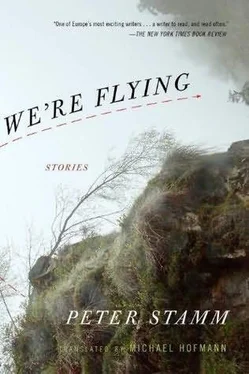

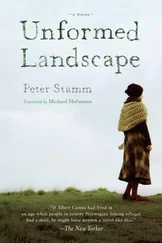



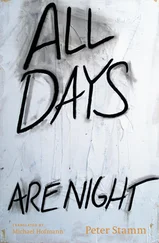
![Brian Jacques - [Flying Dutchman 01] - Castaways of the Flying Dutchman](/books/128851/brian-jacques-flying-dutchman-01-thumb.webp)
